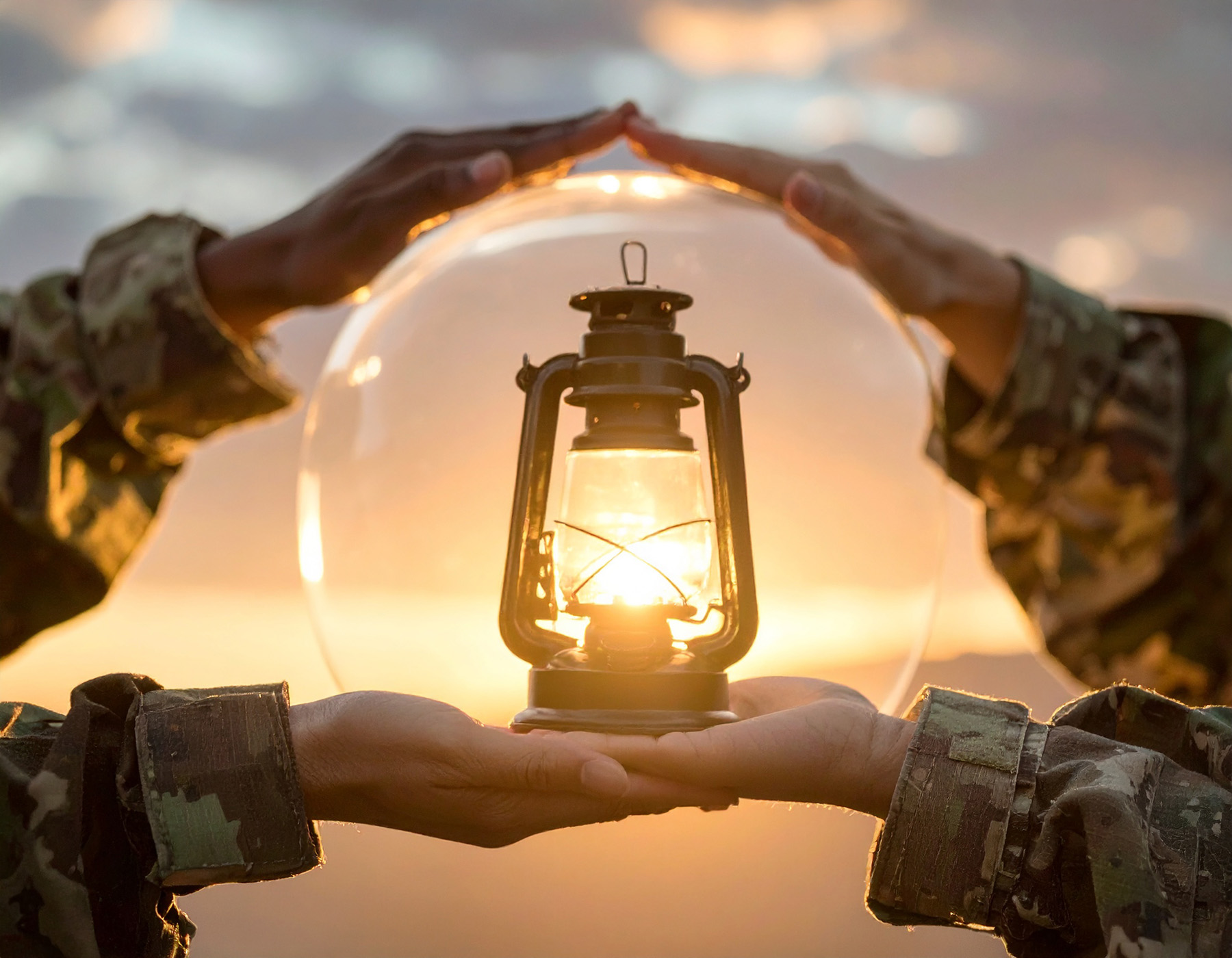In this fourth and final instalment to this series, we examine our how culture comes to bear on ethical challenges. Attitudes to ADF member interactions and internal ethical considerations have shifted over time, as have the wider contexts of Australian society and global military mores. These have come under particular scrutiny in light of recent and widely publicised ethical failings in the organisation.
Culture
On 06 November 2020, The Inspector-General of the Australian Defence Force Afghanistan Inquiry Report (the Brereton Report) was delivered. The report found credible information of 39 unlawful killings by members of the ADF between 2009 and 2013, involving 25 ADF personnel and the covering up of these crimes. One incident was described as ‘possibly the most disgraceful episode in Australia’s military history’.[1] The awful unfolding of this situation has called into sharp relief the current internal ethical landscape of the ADF and raised urgent questions on how to identify and remedy failures. This chapter will seek to look at some of the internal issues the ADF is facing and can expect to face moving forward. They range well beyond war fighting contexts, to issues around veterans, members’ personal ethical frameworks, diversity and inclusion, whistleblowing and internal bureaucratic systems.
The current ethical framework of the ADF was outlined at the start of this document, including values, behaviours, doctrine, and manuals. This framework supports the cultural ecosystem of the organisation and its members. From a legal perspective, the Defence Force Disciplinary Act applies to all members and is the principal means of formally regulating behaviour.[2] All Defence members are also bound by relevant Australian law and treaties to which Australia is party, and relevant international law including the Law of Armed Conflict. These frameworks, both ethical and legal, failed to prevent the incidents described in the Brereton Report, and the cultural ethical ecosystem that enabled them, though the legal proceedings and consequences are ongoing.[3]
Indeed, while not a new issue, the experience of military veterans post discharge is one that is undergoing heated consideration. In July 2021, the Royal Commission into Defence and Veteran Suicide was established.[4] The suicide rate for male veterans is 27 per cent higher that of the general population, and for female veterans is 107 per cent higher.[5] In recent decades, veteran death by suicide was more than 20 times that of serving members’ death in active duty.[6] Military service also comes with the risks of injuries both physical and psychological that affect both veterans and their families. A facet of the veteran experience of particular relevance to this essay is that of moral injury. While not a recognised mental health disorder,[7] the trauma to an individual’s moral compass or to their perception of others’ moral identities is a risk that Service members bear. Professor Deane-Peter Baker distinguishes between the ‘moral pain’ that is a normal and everyday response to witnessing ethical failure, and moral injury or trauma that is a wound delivered by exceptional circumstances.[8] At least some of those implicated in the Brereton Report are described as struggling with the condition.[9] The quality of veteran life is a significant concern for the concept of Jus post Bellum.
Speaking from their personal experience, one British soldier proposes that an understanding of philosophy can both prepare a soldier for military service and help process their actions in the aftermath.[10] The unconventional nature of contemporary combat increases the ethical dilemmas that service members will be faced with[11] and therefore the necessity for comprehensive and appropriate ethical training. Dr Simon Longstaff writes of the importance of prophylactically ‘thickening one’s ethical skin’ in preparation for ethically challenging environments.[12] Legally, the necessity of educating members of armed services in the relevant international laws is codified in IHL.[13] In addition, the ADF has a number of processes in place to educate its members in ethical theory and practice including mandatory annual training,[14] and ethics courses at the leadership level including at ADFA and the Australian Command and Staff College.[15] Professor Whetham notes that there are differences in the ethics education provided to enlisted personnel as opposed to officers, and that there is evidence that effective ethics education for soldiers can reduce risk of acts of atrocity.[16]
While not a new concern, shifting social mores in a contemporary world will raise new issues as the rank system has remained largely unchanged.[17] Power imbalances are unusually pronounced in a military context and highlighted daily through uniform insignia and the requirements of marks of respect. While criticised in execution, the highly publicised Milgram experiment and the Stanford Prisoner experiment popularised ideas about the potentially morally corrosive effects of institutionalised power, both in enabling exploitation by the power holders and reducing a sense of personal responsibility in those ‘just following orders’. More recent research by Cislak et al distinguishes between power in the form of influence over others and power in the form of influence over one’s own life. Their findings were that power over others has a well-documented corrosive effect on moral behaviour, specifically aggressiveness and exploitativeness, but that personal power actually has a mitigating effect on these traits. [18]
Research by Robinson et al[19] looked specifically at the moral consideration process of Royal Australian Air Force (RAAF) officers across various rank levels. They found that the highest ranks were characterised by moral deference to bureaucratic systems and a decision-making self-identity along professional, bureaucratic, and organisational lines. Lower in the rank structure, subjects were more likely to use moralistic language in describing their decision-making infrastructure and to reference non-military self-identities (eg doctor or mother). ‘[Junior officers] eschewed technocratic discourse to deal with it as a moral, not procedural, issue.’ However, junior officers were also more likely to use consequentialist ethics despite this framework being rejected by the ADF-P-0 ME.[20] Describing their experiences on deployment, one British veteran describes this tendency to consequentialism as correlated with the extremity of a situation.[21] Particularly as modern warfare tends to less conventional forms of conflict,[22] understanding how and why different command levels think about ethical problems differently will be vital to a healthy ethical ecosystem that can deal with the complexities each level faces.
It is worth noting that much of the formation of personal moral frameworks occurs before a member joins the ADF. The ADF recruits from Australian society and all individuals will begin the recruitment process with their own varied moral codes, strengths and weaknesses, and biases. As Robinson et al state, ‘Each soldier has a unique narrative as a son or daughter, possibly is a parent, has networks of relationships of various strengths, and various skills including potentially professional status such as a doctor with its own ethical demands.’[23] This relates to the idea of the ADF’s formal ethical framework existing as a bedrock to a much broader ‘ethical ecosystem’ that inevitably and continuously interacts with wider society and shifting ethical mores. The challenge for the ADF is in determining what the ethical guardrails are, communicating and selecting for them at the recruitment stage, and fostering and strengthening healthy moral understanding and practice at the training stage and throughout service. However, within the context of a liberal democracy, Deane-Peter Baker notes the issue of ‘character shaping’ as potentially ethically problematic if it interferes with the free formation of an individual’s own value system.[24]
Another risk to individual freedom comes from the imperative of the ADF to remain apolitical. The ADF-P-0 ME has to say: ‘ADF policy imposes limitations on political activities and comment from its members. This limitation does not prevent our participation in elections, but it does constrain the engagement of ADF members in the broader political process.’[25] It has been noted that in enlisting, the rights of military service personnel are necessarily restricted below that of the general population in areas including ‘freedom of association, various civil rights and freedom of speech’.[26] Nevertheless, the restricting of members from participating in the democratic process, except where such restriction is compelled by military necessity, is a harm to both the freedoms of members themselves, and to the quality and diversity of the democracy of which they are part. Some commentators have made a distinction between ‘non-partisan’ (not favouring any political party or ideology) and ‘apolitical’ (disengagement from political discussion).[27] They propose that while being ‘non-partisan’ is an imperative for legitimate defence forces, military members’ political literacy and engagement is actually beneficial to societies and governments.[28]
Indeed, diversity and inclusion, and related diversity of perspective and thought, is a priority for the ADF.[29] While often considered through the lens of strategic capability enhancement, the issue of diversity also has an ethical component, both in the moral imperative of equality and fairness, supported by the ADF value of Respect, and in the depth and rigour of ethical understanding in the organisation from a diverse member base. The ADF has historically lacked diversity along gender, sexuality, and cultural backgrounds. It has made recent gains in removing structural handicaps to diversity, removing the ban on non-binary service members in 2010[30] and legal barriers to women in combat roles in 2018.[31] Nevertheless, the ADF is still struggling to build a diverse workforce in the face of cultural inertia and public perception. Lowell identifies empathy, developed through inter-cultural and cross-cultural understanding, as critical to virtuous decision making.[32]
A core part of building and sustaining an effective force is the promotion of the sense of belonging to and supporting the interests of a team. However, this raises the psychological challenge of maintaining an individual moral compass that will not be unduly swayed by a sense of loyalty. ADF character doctrine acknowledges that, ‘Sometimes resolving Me versus Us inter-relational problems can take you into the equally complex dynamic of Us versus Them.’[33] The Brereton Report identifies a clique of non-commissioned officers along with a ‘warrior hero culture’ and a ‘misguided loyalty that placed relationships and reputation above truth and morality’ as factors in the breakdown of ethical standards.[34]
It should be noted though that individuals—those who became whistleblowers—overcame this tendency to subserviate ethics to loyalty. The Brereton Report identifies supporting those who expose misconduct as a key to cultural reform.[35] While it has been said that ‘sunlight is the best disinfectant’, the military has a particular challenge in striking a balance between enabling ethical scrutiny and protecting the sensitive security nature of its operations. Even outside of security considerations, there is an inevitable reputational risk to frank and fearless discussion of ADF operations and culture. Particularly as technology proliferation and social media enable small snippets of information or opinion to spread quickly, there is increased danger of complex situations being misinterpreted, perhaps through a political agenda or polarised lens. The tendency of algorithmic suggestions to funnel content towards polar opinion could exacerbate this concern.
How then to balance the potential ethical benefits of scrutiny with the risks of incautious treatment of sensitive information? Australia’s Public Interest Disclosure Act seeks to offer some legal protection for whistleblowers, and the National Security Information (NSI) Act limits to what extent the release of sensitive information is protected.[36] The use of the NSI Act to enforce secrecy in public interest whistleblower cases has been persistently criticised.[37] Many whistleblowers have suffered severe repercussions for their actions, including violent threats, destroyed livelihood,[38] legal prosecution,[39] and homes raided.[40] Journalists have also been raided when they have published nationally sensitive information.[41] The protections offered in Australian law have been accused of being too weak, and the repercussions faced by whistleblowers a threat to democracy.[42] Many whistleblowers, including David McBride[43] and Witness K,[44] say their actions were driven by a sense of personal moral imperative. It may be worth noting here from an ethics perspective that the ADF-P-0 ME prioritises virtue of character and a sense of duty over consequentialist approaches.[45]
While the development of personal moral character is undoubtedly valuable, it is also important to acknowledge the effect of organisational and administrative structure on both culture and individual actions. A 2015 study on officers in the US Army found ubiquitous incidence and acceptance of lying across many areas, including reporting requirements, mandatory training, procurement, etc.[46] While they found some minor factors and rationalisations such as mission accomplishment, supporting the troops, or even personal careerism, the fundamental underlying justification was that ‘dishonesty is often necessary because the directed task, the data requested, or the reporting requirement is unreasonable or “dumb”’.[47] While ‘white lies’ in the service of navigating Kafkaesque bureaucracy may seem harmless, the consequences were an ‘ethical fading’ and ‘ethical numbing’ where decisions were no longer viewed through a moral lens. They note, ‘Once the bar of ethical standards is lowered, the malleability of those standards becomes a rationale for other unethical decisions.’[48]
These risks of bureaucratic structures encouraging an erosion of ethical standards is not unique to the American military. A psychiatrist for the Australian veteran community noted that as early as the recruitment process, candidates would lie about significant psychological vulnerabilities in order to improve their chances of acceptance.[49] Professor David Whetham’s report identifies a pattern of gradual ethical erosion. He writes, ‘There were a series of rules applied to SOCOMD [Special Operations Command] personnel who, in their view, made their missions more challenging and put their personal and collective safety at risk.’[50] While some of the examples are burdensome reporting requirements, some, such as the prohibition on firing warning shots, were seen as impediments to acting ethically and were actually disobeyed out of a sense of moral responsibility.[51] Professor Whetham writes, ‘The cultural responses to such “wrong rules” was to find ways to subvert and break them.’[52] Along with numerous other factors, this culture of initially pragmatic and non-malicious rule breaking contributed to the eventually gross ethical and legal violations detailed in the Brereton Report.
As we can see, the ethical culture of the ADF depends on both the formal ethical framework and the more nebulous ‘ethical ecosystem’, in dialogue with numerous external factors. The recent Brereton Report has highlighted the fragility and fallibility of this culture. As well as current serving members, the ADF also has an ethical responsibility to veterans. Within the ADF the personal moral compasses of members interact with factors such as rank, personal identities, and lived experiences. Encouraging a diversity of both experience and thought is desirable from both an equity perspective as well as building rigour in internal ethical understanding. Whistleblowing, while it contributes to this rigour, raises a dilemma of balancing the benefits of openness to scrutiny with the necessity of information classification in ADF operations. Likewise, internal bureaucracy must be structured with an understanding of the risks of micromanagement to the health of the ethical ecosystem.
Conclusion
This essay has looked at some of the current and impending challenges to the ADF’s ethical framework under the four umbrella topics of Environment, Technology, Role, and Culture. Inevitably, these topics overlap considerably and many issues straddle multiple areas and benefit from multiple approaches and perspectives. This essay is not comprehensive, and many considerations were not touched upon. No doubt many more will arise in the future tasks the ADF is called up in service of. This essay does not seek to prescribe didactic solutions, but instead to join the thought and conversation around this vitally important topic. It also steers away from broader and well-covered discussion of military ethical theory to focus on issues that are in some way novel or particularly relevant to the challenges the ADF is currently facing or might face in the future. Perhaps most importantly though, it is not about strategy. We should be clear that we consider these challenges not because it will bring strategic benefit (even though it might) but because it is the right thing to do.
1 PLG Brereton, Inspector-General of the Australian Defence Force: Afghanistan inquiry report, p103.
2 Australian Government Defence, Military justice system, https://www.defence.gov.au/about/governance/military-justice-system, Defence, n.d., accessed 29 November 2023.
3 At time of writing 2023.
4 Royal Commission into Defence and Veteran Suicide, Home Page, https://defenceveteransuicide.royalcommission.gov.au/, Australian Government, n.d., accessed 10 November 2023.
5 J McManagan, The program connecting traumatised veterans with ex-racehorses, https://www.abc.net.au/news/2023-11-10/the-healing-veterans-horses-ptsd-treatment-remembrance-day/103086022, ABC, 10 November 2023, accessed 10 November 2023.
6 M Knott, Defence blasted for ‘going through the motions’ on veteran suicides, https://www.smh.com.au/politics/federal/defence-blasted-for-going-through-the-motions-on-veteran-suicides-20230913-p5e47e.html, Sydney Morning Herald, 13 December 2023, accessed 10 November 2023.
7 Australian Government Department of veterans’ Affairs, Moral injury, https://www.openarms.gov.au/signs-symptoms/moral-injury, Open Arms, n.d., accessed 10 November 2023.
8 M Cook (Host) (1 June 2020) On Morality at War, [Podcast], The Dead Prussian Podcast, accessed 10 November 2023.
9 PLG Brereton, Inspector-General of the Australian Defence Force: Afghanistan inquiry report, p31.
10 A Owen, Ethics on the battlefield, https://aeon.co/essays/how-philosophy-helped-one-soldier-on-the-battlefield, Aeon, 13 June 2018, accessed 10 November 2023.
11 K Robinson et al., The relationship of risk to rules, values, virtues, and moral complexity: What we can learn from the moral struggles of military leaders.
12 S Longstaff, Military ethics and its application to the Australian Defence Force [pdf 132KB], https://www.rusinsw.org.au/site/Lectures_and_Presentations.php#spring2020, United Service, Volume 71, Number 3, September 2020, accessed 11 November 2023.
13 International Committee of the Red Cross, Practice relating to Rule 142: Instruction in International Humanitarian Law within Armed Forces, https://ihl-databases.icrc.org/en/customary-ihl/v2/rule142, International Humanitarian Law Databases, n.d., accessed 29 November 2023.
14 C Haas, An exemplar of society: How the Australian Defence Force applies its organisational ethical standards.
15 C Haas, An exemplar of society: How the Australian Defence Force applies its organisational ethical standards.
16 D Whetham, Inspector-General of the Australian Defence Force: Afghanistan inquiry report (Annex A - Whetham report), p507
17 ANZAC Day Commemoration Committee (Queensland), Explanation of Defence Force ranks, https://anzacday.org.au/explanation-of-defence-force-ranks, ANZAC Day Commemoration Committee, 2023, accessed 11 November 2023.
18 A Cislak et al., Power corrupts, but control does not: What stands behind the effects of holding high positions, https://journals.sagepub.com/doi/10.1177/0146167218757456, Personality and Social Psychology Bulletin, 44(6), 944-957, 2018, accessed 11 November 2023.
19 K Robinson et al., The relationship of risk to rules, values, virtues, and moral complexity: What we can learn from the moral struggles of military leaders.
20 Australian Defence Force, ADF Philosophical Doctrine - Military Ethics.
21 A Owen, Ethics on the battlefield.
22 This is discussed in more depth in the chapter on Role.
23 K Robinson et al., The relationship of risk to rules, values, virtues, and moral complexity: What we can learn from the moral struggles of military leaders.
24 M Cook (Host) On Morality at War, [Podcast].
25 Australian Defence Force, ADF Philosophical Doctrine - Military Ethics.
26 A Walsh and K Van de Ven, Human enhancement drugs and Armed Forces: an overview of some key ethical considerations of creating ‘Super-Soldiers’.
27 K Atwell (Host) (17 April 2023) Civil-military relations and partisanship in the armed forces, https://mwi.westpoint.edu/civil-military-relations-and-partisanship-in-the-armed-forces/, Social Science of War, Modern War Institute at West Point, accessed 26 October 2023.
28 K Atwell (Host) Civil-military relations and partisanship in the armed forces [Podcast].
29 Australian Government Defence, Diversity and inclusion, https://www.defence.gov.au/jobs-careers/defence-aps-jobs/what-defence-offers/diversity-inclusion, Defence, n.d., accessed 20 November 2023.
30 N Riseman, Why a national apology and redress for discharged LGBT service members matters, https://theconversation.com/why-a-national-apology-and-redress-for-discharged-lgbt-service-members-matters-104133, The Conversation, 2 October 2018, accessed 12 November 2023.
31 E Gordon, Marginalising female combatants after conflict, https://www.lowyinstitute.org/the-interpreter/marginalising-female-combatants-after-conflict, The Interpreter, The Lowy Institute, 8 November 2018, accessed 12 November 2023.
32 DW Lovell, ‘Educating for Ethical Behaviour? Preparing Military Leaders for Ethical Challenges’.
33 Australian Defence Force, Character in the Profession of Arms.
34 PLG Brereton, Inspector-General of the Australian Defence Force: Afghanistan inquiry report, p325.
35 PLG Brereton, Inspector-General of the Australian Defence Force: Afghanistan inquiry report, p326.
36 Australian Government Attorney-General’s Department, National Security Information Act, https://www.ag.gov.au/national-security/national-security-information-act, Attorney-General’s Department, n.d., accessed 18 November 2023
37 H Belot and C Knaus, Labor flags law reforms to stop cases involving national security being cloaked in secrecy, https://www.theguardian.com/australia-news/2023/jan/27/labor-flags-law-reforms-to-stop-cases-involving-national-security-being-cloaked-in-secrecy, The Guardian, 27 January 2023, accessed 18 November 2023.
38 B Shields, Shameful treatment of the messenger who exposed war crimes, https://www.smh.com.au/politics/federal/shameful-treatment-of-the-messenger-who-exposed-war-crimes-20230627-p5djrl.html, Sydney Morning Herald, 28 June 2023, accessed 17 November 2023.
39 A Ferguson, As whistleblower David McBride pleads guilty, pressure is building on the Albanese government, ABC, 18 November 2023, accessed 18 November 2023.
40 C Knaus, Sailor, spy, whistleblower, grandfather: the life of Witness K revealed in court documents, https://www.abc.net.au/news/2023-11-18/david-mcbride-guilty-plea-whistleblower-protection/103120544, The Guardian, 4 July 2021, accessed 18 November 2023.
41 L Knowels et al., ABC raid: AFP leave Ultimo building with files after hours-long raid over Afghan Files stories, https://www.abc.net.au/news/2019-06-05/abc-raided-by-australian-federal-police-afghan-files-stories/11181162, ABC, 6 June 2019, accessed 18 November 2023; SBS News, 'Attack on public’s right to know': Critics slam AFP raids on ABC Sydney offices, https://www.sbs.com.au/news/article/attack-on-publics-right-to-know-critics-slam-afp-raids-on-abc-sydney-offices/xvwps1fuu, SBS, 5 June 2019, accessed 18 November 2023.
42 M Bennet and C Bates (Media Contact) McBride’s guilty plea to have a chilling effect on whistleblowing and public interest journalism, https://www.hrlc.org.au/news/2023/11/17/mcbrides-guilty-plea-chilling-effect-whistleblowing-journalism, Human Rights Law Centre, 17 November 2023, accessed 18 November 2023.
43 B Doherty and SB Canales Australian military whistleblower pleads guilty over Afghan Files leak, https://www.theguardian.com/australia-news/2023/nov/17/australian-military-whistleblower-pleads-guilty-over-afghan-files-leak, The Guardian, 17 November 2023, accessed 18 November 2023.
44 S Cannane et al., 'Matter of death and life': Espionage in East Timor and Australia's diplomatic bungle, https://www.abc.net.au/news/2015-11-25/east-timor-greater-sunrise-spy-scandal/6969830, ABC, 25 November 2015, accessed 18 November 2023.
45 Australian Defence Force, ADF Philosophical Doctrine - Military Ethics.
46 L Wong and SJ Gerras, Lying to Ourselves: Dishonesty in the Army Profession, US Army War College Press, https://press.armywarcollege.edu/monographs/466/, 2015, accessed 19 November 2023.
47 L Wong and SJ Gerras, Lying to Ourselves: Dishonesty in the Army Profession, US Army War College Press.
48 L Wong and SJ Gerras, Lying to Ourselves: Dishonesty in the Army Profession, US Army War College Press.
49 J Watson, ‘Should never have been allowed in’: ADF recruiting psychologically unfit candidates, veteran psychiatrist says, https://www.theguardian.com/australia-news/2023/feb/23/should-never-have-been-allowed-in-adf-recruiting-psychologically-unfit-candidates-veteran-psychiatrist-says, The Guardian, 23 February 2023, accessed 16 November 2023.
50 D Whetham, Inspector-General of the Australian Defence Force: Afghanistan inquiry report (Annex A - Whetham report), p509.
51 D Whetham, Inspector-General of the Australian Defence Force: Afghanistan inquiry report (Annex A - Whetham report), p510.
52 D Whetham, Inspector-General of the Australian Defence Force: Afghanistan inquiry report (Annex A - Whetham report), p509.
Social Mastery
Navigating New Ethical Frontiers - Part 4 - Culture © 2025 by . This work is licensed under CC BY-NC-ND![]()
![]()
![]()
![]()
Please let us know if you have discovered an issue with the content on this page.
Comments
Start the conversation by sharing your thoughts! Please login to comment. If you don't yet have an account registration is quick and easy.





